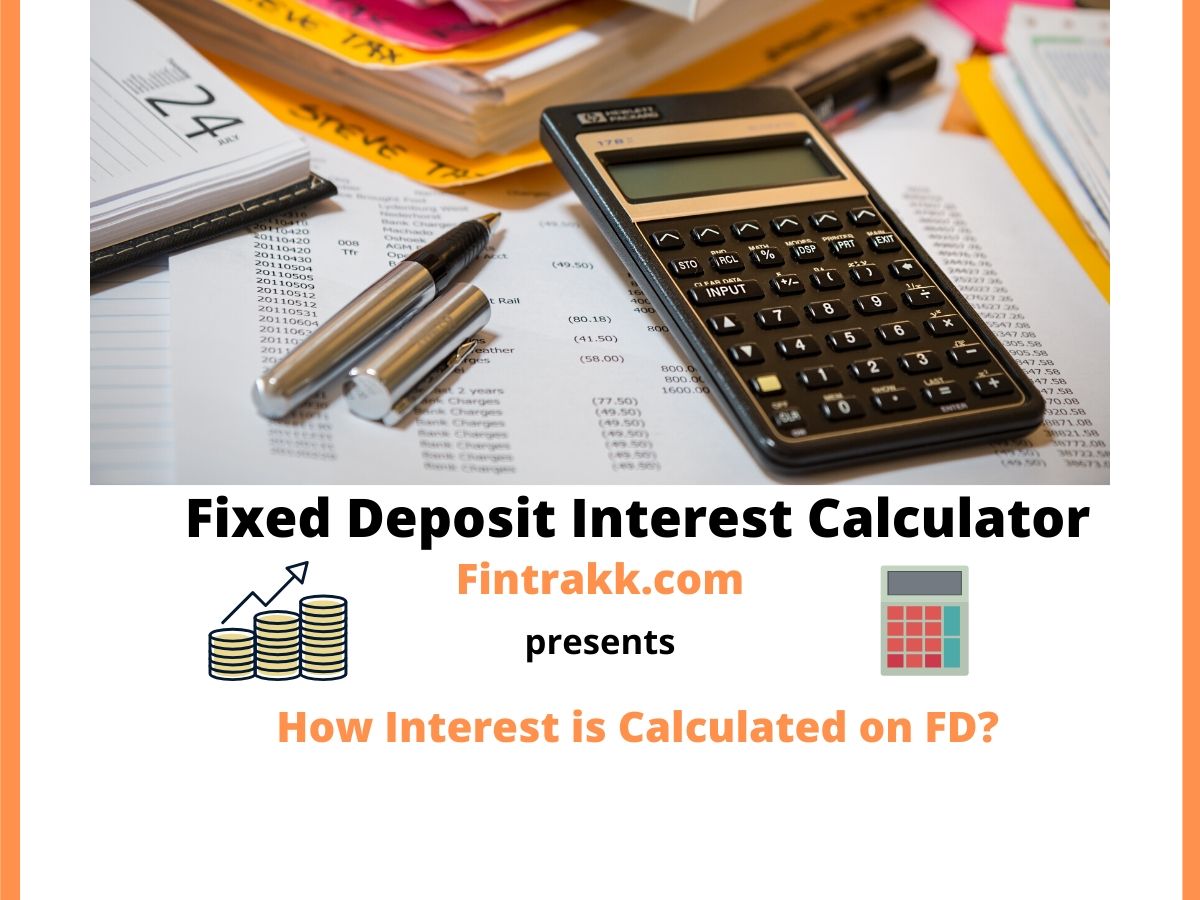Are you stumped by the interest calculations on fixed deposit? In this post, we will make you understand how to calculate returns earned on your FD? Or we can say, you’ll know how an Fixed Deposit Interest Calculator or an FD calculator works? Don’t worry, if you have never laid hands on Fixed Deposit Calculator before! You’ll learn to work on one after reading this post. We are there to help you.
Let’s start counting your dimes!
A Brief Intro To Fixed Deposits
A fixed deposit has evolved as the secure investment option for risk-averse personalities in India. Money attracts everyone, but few of us are ready to take financial risks. Most people decide to invest in FD account, as it comes with fixed earnings without any financial risk. We can say, it is a safe investment that will preserve your capital!
Let’s Jump To Returns
A saving scheme without risk will offer your guaranteed earnings, but these earnings will be lower than equity or other investment schemes. But still, fixed deposit interest rates are higher than saving accounts. You lock down the amount for a fixed period, after completing the tenure, a bank will reward you with pre-defined returns!
Current Interest Rate On Fixed Deposits
As said before, interest rates are fixed but vary from bank to bank. Right now, banks are offering rates between 6 – 9%, but not more than that! For senior citizens, banks offer better interest rates on FDs.
The FD Interest rates usually vary from bank to bank based on the type and tenure of fixed deposit. This implies, if you invest in FD with a longer maturity period, you could fetch better returns as compared to a short term FD.
Also have a look at Fixed Deposit Double Scheme
How To Use A Fixed Deposit Calculator?
The majority of people have no clue about calculating fixed deposit interest or total investment at maturity. Because people simply use the percentage formula to find out interest earned. That’s completely wrong approach!
Before starting with the calculator, you need to understand a concept of compound interest!
Here we are dealing with two types of simple and compound interest. In simple words, the interest amount remains same throughout the maturity period in case of simple interest.
On the other hand, we apply the percentage of previous balance (including interest) from last year.
Still Confused? Let’s Just Calculate It!
Simple Interest Simplified
Simple interest is always determined based on the initial investment only.
Let’s suppose,
Fixed deposit amount = Rs. 1,000
Tenure = 3 years
Interest Rate = 10% per annum
1st Year: Rs. 1,000 x 10% = Rs. 100
2nd Year: Rs. 1,000 x 10% = Rs. 100
3rd Year: Rs. 1,000 x 10% = Rs. 100
Total Interest Earned = Rs. 300
Total Maturity Amount = Rs. 1,000 + Rs. 300 = Rs. 1,300
Compound Interest Simplified
Let’s Deal With Compound Interest…
Here, we will apply percentage on both principal and earned interest.
Taking the data from the previous example!
1st Year: Rs. 1,000 x 10% = Rs. 100
2nd Year: Rs. (1,000 + 100) x 10% = Rs. 110
3rd Year: Rs. (1,100 + 110) x 10% = Rs. 121
Total Interest Earned = Rs. 331
Total Maturity Amount = Rs. 1,331
Simple Math, and you can yourself get the results.
Did you get the point? This is how simple interest and compound interest is calculated.FD
Now, you get it, these fixed deposits have an edge of compound interest! In most of the banks, FD interest is compounded quarterly. Hence, you always end with a handsome maturity amount with safety!
But, if you wish to diversify your investments, you may have a look at Best Long Term Investments in India.
You can save your time by using online fixed deposit calculators. Just Google it and hit on top results! They will work fine! Otherwise, you just have learned how to find out maturity amount! You surely can get an idea as how much you’ll earn on the amount you invested in a fixed deposit. For any queries, feel free to discuss.

